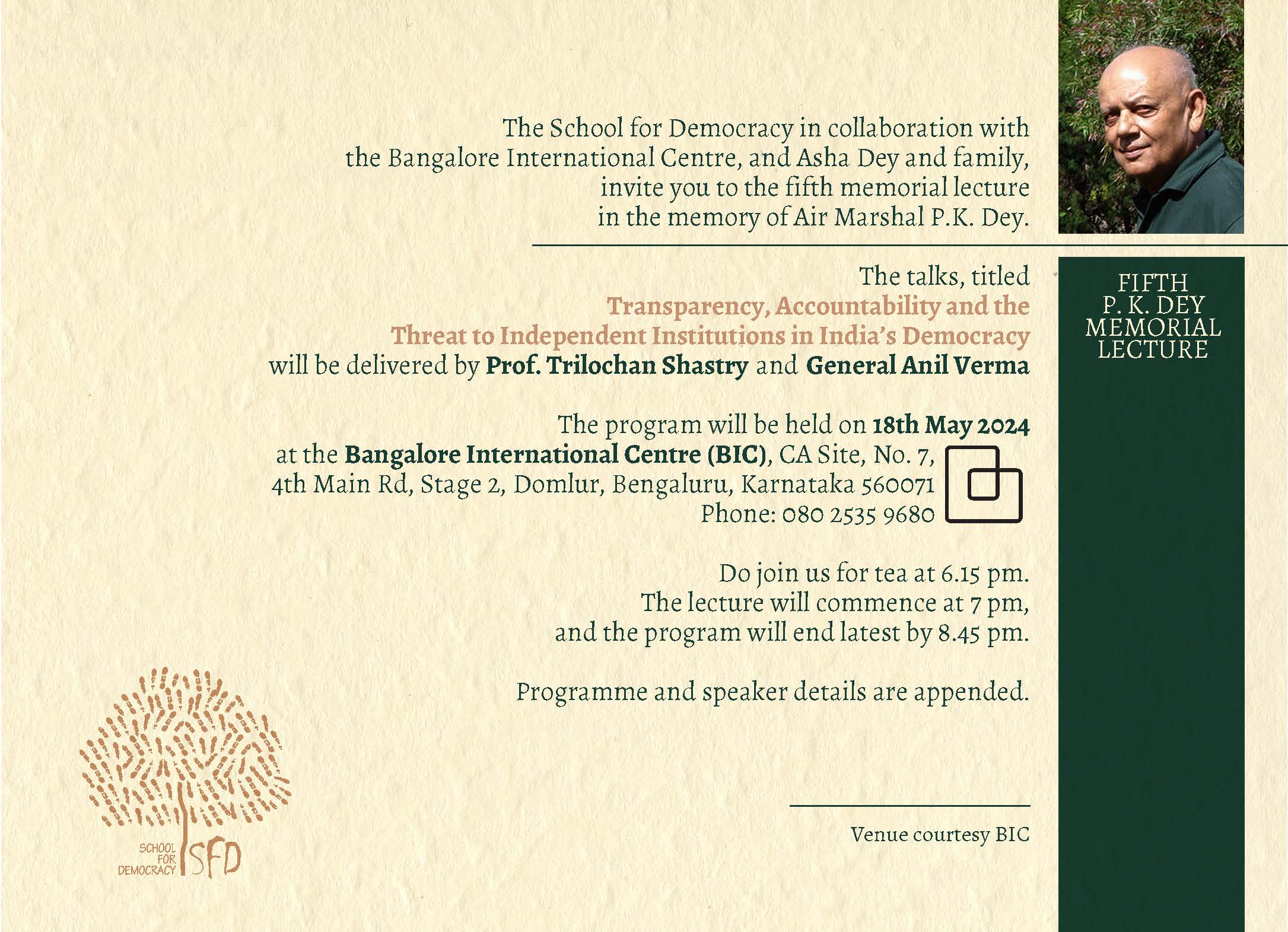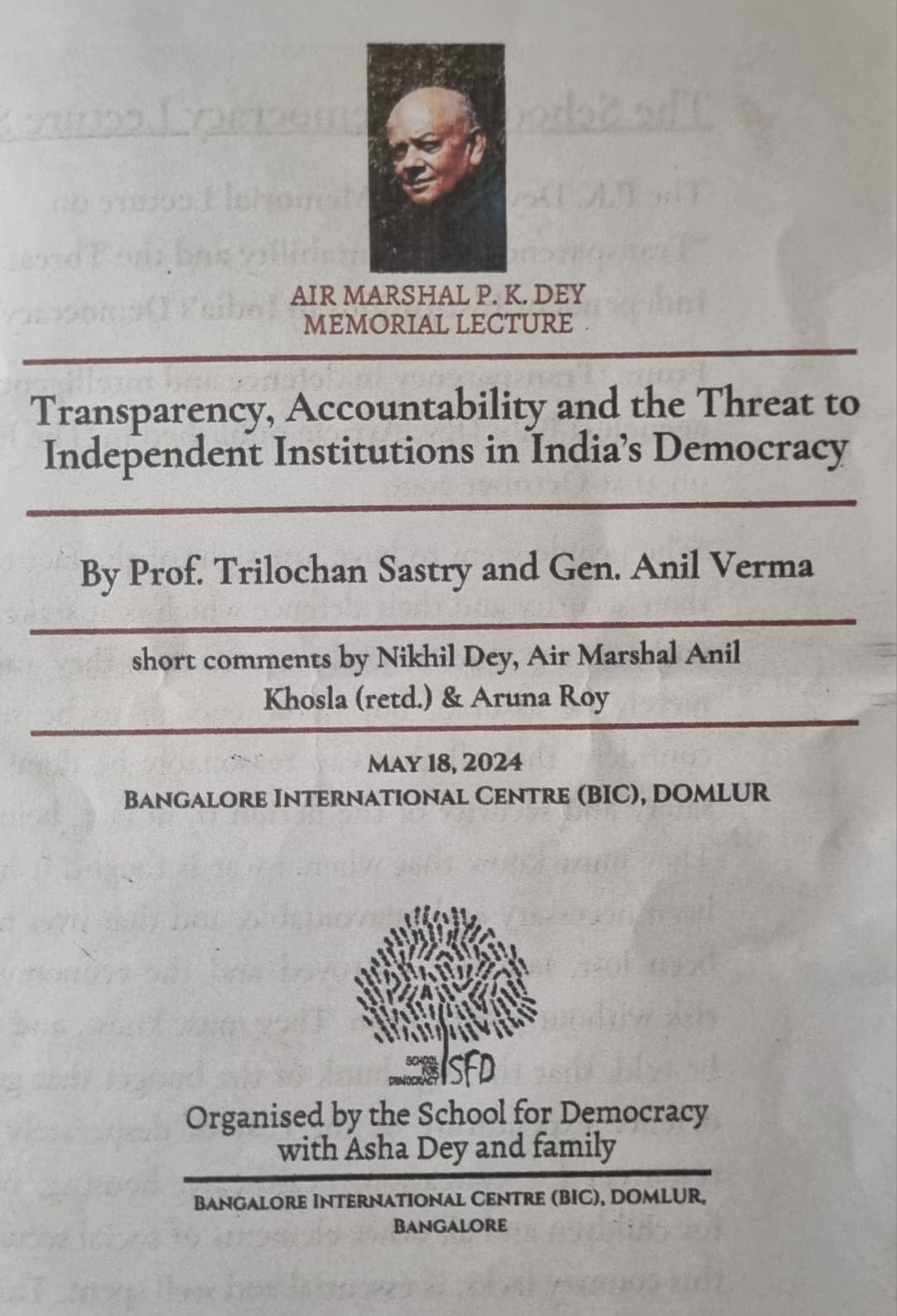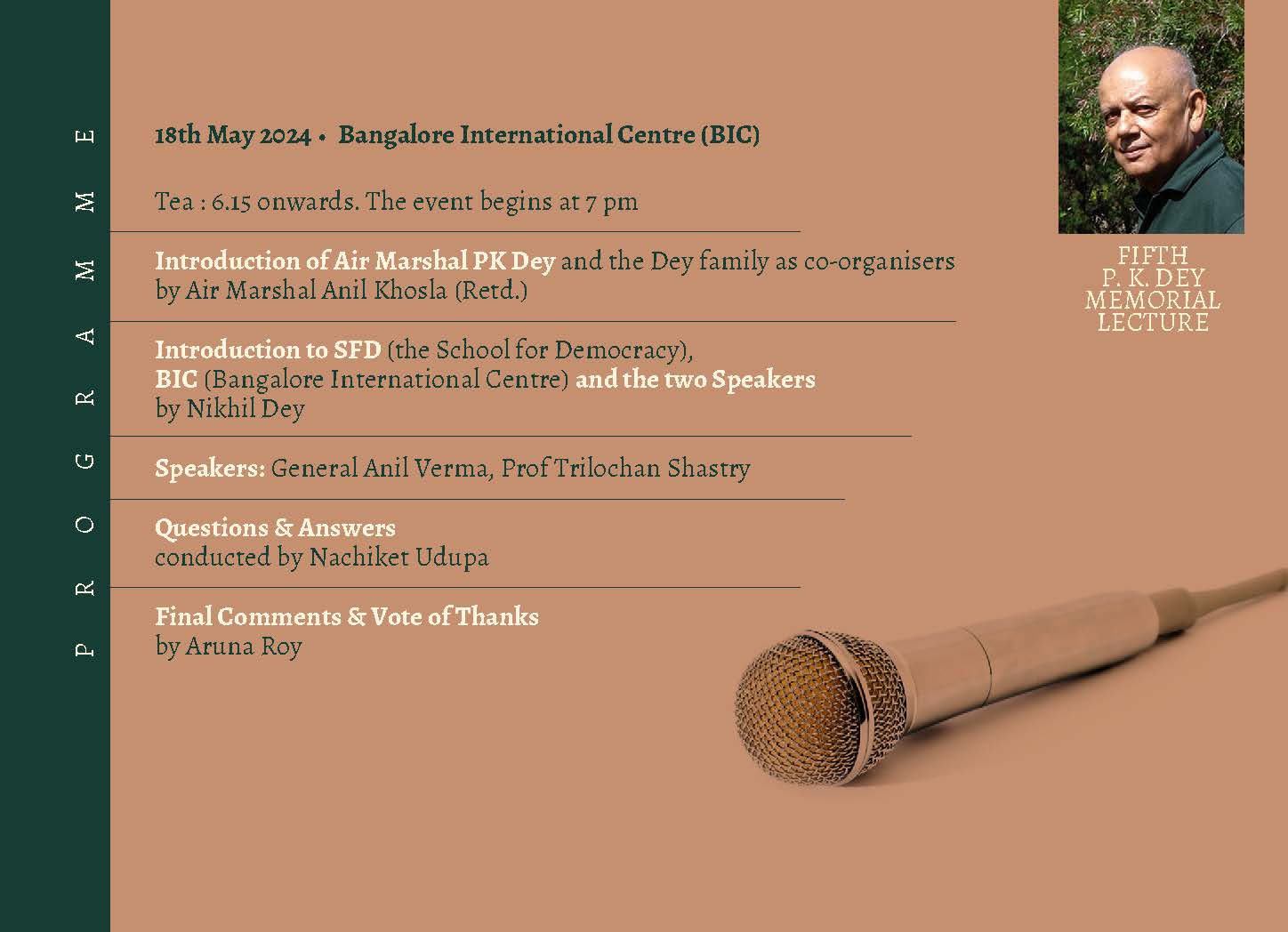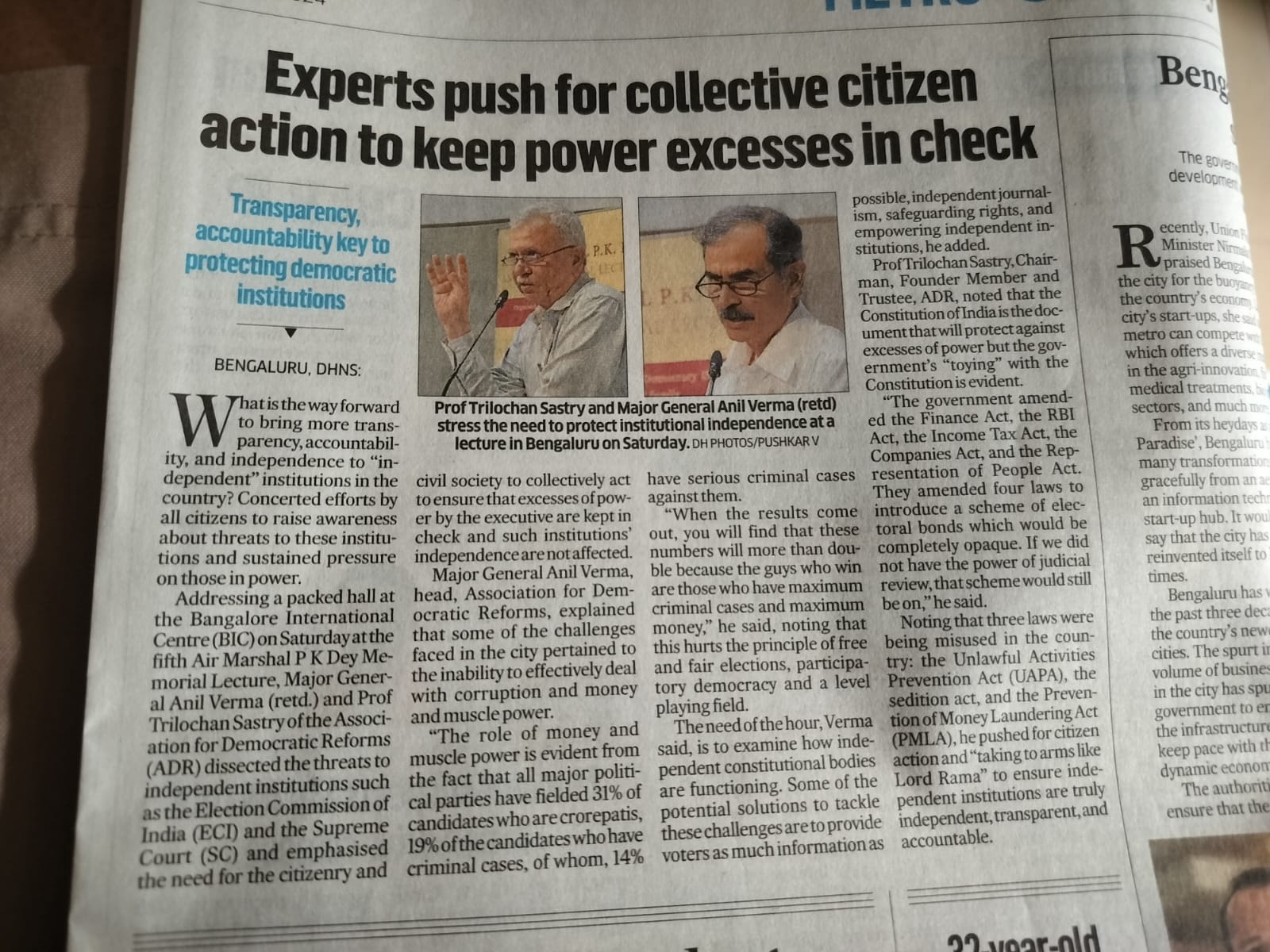Air Marshal PK Dey Memorial Lecture was held on 18 May 24

Organised by the Dey Family & School for Democracy
at Bangalore International Center

Programme

Topic and the Speakers

The Eminent Speakers

Introduction to the Air Marshal and the topic
by Air Mshl Anil Khosla (Retd)
News Coverage (Deccan Herald 19 May 24)
https://www.deccanherald.com/india/karnataka/bengaluru/experts-push-for-collective-citizen-action-to-keep-power-excesses-in-check-3028741
The Gist of the Talk
(as reported in the Deccan Herald)
At a lecture in Bengaluru on Saturday, Prof Trilochan Sastry and Major General Anil Verma (retd) stressed the need to protect institutional independence.
Addressing a packed hall at the Bangalore International Centre (BIC) on Saturday at the fifth Air Marshal P K Dey Memorial Lecture, Major General Anil Verma (retd.) and Prof Trilochan Sastry of the Association for Democratic Reforms (ADR) dissected the threats to independent institutions such as the Election Commission of India (ECI) and the Supreme Court (SC), They emphasised the need for the citizenry and civil society to collectively act to ensure that excesses of power by the executive are kept in check and such institutions’ independence are not affected.
Major General Anil Verma, head of the Association for Democratic Reforms, explained that some of the challenges faced in the country related to the inability to deal with corruption, money, and muscle power effectively.
“The role of money and muscle power is evident from the fact that all major political parties have fielded 31% of candidates who are crorepatis, 19% of the candidates who have criminal cases, and 14% of the candidates who have serious criminal cases against them.
“When the results come out, you will find that these numbers will more than double because the guys who win are those who have maximum criminal cases and maximum money,” he said, noting that this hurts the principle of free and fair elections, participatory democracy and a level playing field.
The need of the hour, Verma said, is to examine how independent constitutional bodies are functioning. Some of the potential solutions to tackle these challenges are to provide voters with as much information as possible, independent journalism, safeguarding rights, and empowering independent institutions, he added.
Prof Trilochan Sastry, Chairman, Founder Member and Trustee of ADR, noted that the Constitution of India is the document that will protect against excesses of power. Still, the government’s “toying” with the Constitution is evident.
“The government amended the Finance Act, the RBI Act, the Income Tax Act, the Companies Act, and the Representation of People Act.
They amended four laws to introduce a scheme of completely opaque electrical bonds. If we did not have the power of judicial review, that scheme would still be on,” he said.
Noting that three laws—the Unlawful Activities Prevention Act (UAPA), the Sedition Act, and the Prevention of Money Laundering Act (PMLA)—were being misused in the country, he pushed for citizen action and “taking to arms like Lord Rama” to ensure independent institutions are truly independent, transparent, and accountable.
Suggestions and value additions are most welcome.
For regular updates, please register here:-
References and credits
To all the online sites and channels.
Disclaimer:
Information and data included in the blog are for educational & non-commercial purposes only and have been carefully adapted, excerpted, or edited from reliable and accurate sources. All copyrighted material belongs to respective owners and is provided only for wider dissemination.

